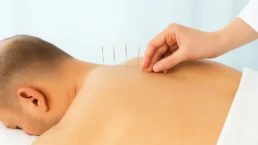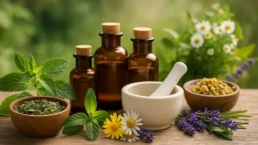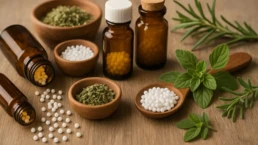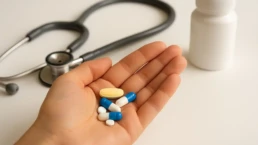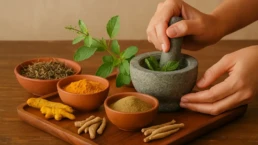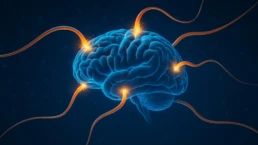Key Takeaways
- NAD+ is a molecule that fuels every cell in your body.
- It’s critical for energy, repair, and brain function.
- NAD+ and aging go hand-in-hand. NAD+ levels drop as we get older.
- You can boost NAD+ levels with certain foods, habits, and NAD+ supplementation.
- Fatigue, memory issues, and poor metabolic health can result from low NAD+.
What is NAD+?
NAD+ stands for nicotinamide adenine dinucleotide. It’s a coenzyme found in every single cell in your body. What does it do? It functions as a switch that maintains cellular vitality and activity. Without it, nothing inside your cells can function properly.
Table of Contents
ToggleNAD+ helps convert food into fuel through a process called ATP production. This gives your cells the cellular energy they need to do everything, from healing cuts to powering your brain.
The real importance of NAD+ shows when it drops. As we age, NAD+ and aging become closely connected. Levels of NAD+ decline, making you feel more tired, foggy, and slow. That’s why keeping your NAD+ high supports your entire body, your brain, heart, muscles, and even your skin.
There’s more. NAD+ benefits go far beyond energy. It helps repair damaged DNA (DNA repair), controls your sleep cycle (circadian rhythm regulation), and supports mitochondrial health, which is key to aging well.
So when people ask what is NAD+, the answer is simple: it’s the fuel and fixer that keeps you alive, healthy, and functioning at your best.
How NAD+ Is Powerful?
Your body needs energy all the time, even when you’re sleeping. That energy comes from food, and NAD+ helps turn it into a form your cells can use, called ATP production.
But that’s not all.
Here are more NAD+ benefits you need to know:

- Helps your cells fix broken DNA (DNA repair)
- Keeps your brain and muscles healthy
- Protects your cells from harmful damage (oxidative stress)
- Keeps your circadian rhythm regulation in sync so you sleep well
- Activates sirtuins, which are proteins that fight aging
When NAD+ drops, so do these benefits. This is why NAD+ and aging are so closely linked. Less NAD+ often means more signs of aging, like feeling tired, forgetful, or weak.
What is the History of NAD+?
NAD+’s history started more than a century ago. Scientists first found it while studying yeast and fermentation. Subsequently, in the 1930s, it was discovered that NAD+ is associated with vitamin B3, also known as niacin
Over time, researchers found that NAD+ plays a huge role in health, especially for mitochondrial health, those are the tiny power plants in your cells.
By the early 2000s, scientists learned how NAD+ supplementation could slow signs of aging and improve health in animals. That’s when interest in anti-aging supplements started to grow.
Today, researchers are still learning how NAD+ works and how it can help fight age-related diseases.
The Nuance of NAD+
Here’s something most people don’t know; NAD+ doesn’t work alone. It has partners.
Your body uses something called NAD+ precursors to make NAD+. These are the raw materials that help your cells produce more NAD+ naturally.
Two common precursors are:
- Nicotinamide riboside (NR)
- Nicotinamide mononucleotide (NMN)
Fruits, vegetables, and milk all contain trace levels of them.
There’s also NADH, a similar molecule that works with NAD+ during redox reactions. These reactions help your cells swap energy, like a battery charging and draining.
Understanding the balance of these parts helps explain how your body stays strong or starts to slow down.
How Can You Get More NAD+?
Now that you know how important NAD+ is, let’s talk about how to keep your levels high.
You can increase NAD+ by getting enough sleep, eating foods rich in vitamin B3 or try NAD+ supplementation.
Here are other smarter strategies target real, cellular change:
- Take NAD+ precursors like nicotinamide riboside (NR) or nicotinamide mononucleotide (NMN) both support direct NAD+ supplementation.
- Cut excess sugar and alcohol. They drain NAD+ and increase oxidative stress.
- Use low-dose niacinamide with meals to trigger ATP production and maintain cellular energy.
- Eat methyl donors like beets (betaine), B12, and folate to recycle NADH back into NAD+.
- Try cold exposure or sauna therapy. They activate sirtuins, increasing NAD+ benefits.
- In advanced cases, doctor-guided IV or liposomal NAD+ supplementation may help restore mitochondrial health.
Each of these tools supports the importance of NAD+ in energy, repair, and protection from age-related diseases.
The Future of NAD+

The science of NAD+ is growing fast. Some studies suggest that keeping NAD+ levels high could help slow aging, protect the brain, and even fight diseases like Alzheimer’s and Parkinson’s.
Doctors are also looking at NAD+ supplementation for people with heart issues, brain problems, and low energy.
But we still need more research. Experts want to learn which NAD+ precursors work best and how much is safe for long-term use.
Still, one thing is clear: keeping NAD+ strong as we age is one of the best things we can do for our metabolic health.
Conclusion
Your cells can’t work without NAD+. It’s like oxygen for your inner engine. And the importance of NAD+ becomes crystal clear when you realize how it keeps you alive, sharp, and energetic.
But your NAD+ levels don’t stay the same. They shrink as you age. That’s where the concern about NAD+ and aging comes in. Low NAD+ means slower recovery, weaker immunity, and faster aging.
Thankfully, you can take control. From better sleep and daily movement to smart NAD+ supplementation, there are many ways to boost NAD+ levels. And it’s not just about living longer, it’s about living better.
FAQs About NAD+
What does the NAD+ do?
NAD+ fuels your cells, repairs DNA, supports your metabolism, and protects against cell damage. It’s essential for energy and plays a major role in healthy aging and body function.
How can I increase my NAD+ levels naturally?
You can boost NAD+ levels through regular exercise, better sleep, intermittent fasting, and foods rich in vitamin B3. These lifestyle habits help your cells make more NAD+ naturally.
Is NAD+ just vitamin B3?
No. Vitamin B3 helps your body produce NAD+, but NAD+ itself is a different molecule. It works inside cells to support energy, brain function, and DNA protection.
Do NAD+ supplements really work?
Yes. Research shows NAD+ supplementation using NR or NMN can safely raise NAD+ levels and may help improve memory, energy, and support healthy aging.
Who should not take NAD+?
Pregnant or nursing women, children, or people with serious health conditions should avoid NAD+ supplementation unless advised by a doctor. Always consult your healthcare provider first.
Does NAD+ level decline with age?
Yes. NAD+ and aging are closely connected. Levels begin to drop in your 30s and keep declining. This affects energy, focus, and increases the risk of age-related diseases.
What supplements help increase NAD+?
Nicotinamide riboside (NR) and nicotinamide mononucleotide (NMN) are two science-backed options shown to help boost NAD+ levels and improve your overall cellular energy.
Is NAD+ safe to take as a supplement?
In general, NAD+ supplementation is considered safe. Most people tolerate it well, but it’s smart to consult a doctor before starting any new anti-aging supplements or health products.

This article is medically reviewed by Dr. Chandril Chugh, Board-Certified Neurologist, providing expert insights and reliable health information.
Dr. Chandril Chugh is a U.S.-trained neurologist with over a decade of experience. Known for his compassionate care, he specializes in treating neurological conditions such as migraines, epilepsy, and Parkinson’s disease. Dr. Chugh is highly regarded for his patient-centered approach and dedication to providing personalized care.


